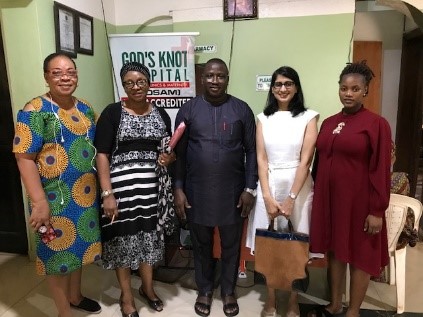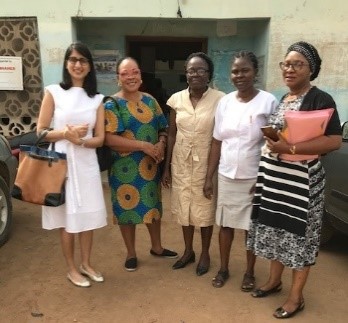Assessing gender-transformative supportive supervision for family planning providers
SHOPS Plus has piloted a new model which looks at supportive supervision with a gender lens in Nigeria. The team is in the process of assessing the model, and will report on the results this fall.
Supportive supervision is a common approach to improving a health provider’s performance that includes setting performance goals and monitoring performance, joint problem-solving, and addressing professional development needs. Gender dynamics can influence interactions between providers and supervisors, and gender can influence a provider’s performance in the workplace. However, issues related to gender are generally not discussed in supportive supervision. SHOPS Plus piloted a gender-transformative supportive supervision model among a group of public and private family planning providers and their supervisors in Nigeria in 2019.

Gender-transformative supportive supervision aims to improve provider performance, retention, and gender equity in the workplace. The model integrates gender into standard supportive supervision training for supervisors and introduces tools for supervisors that promote discussions around gender. The pilot added such a module into a training for supervisors and coaches who support SHOPS Plus-trained family planning providers in the public and private sector. During the pilot, SHOPS Plus trained 30 coaches, 12 government supervisors, and 20 private facility supervisors who supervise over 150 providers in Oyo and Akwa Ibom states on the curriculum.
SHOPS Plus has been conducting a formative assessment among providers and supervisors/coaches in the two states to understand how this type of supportive supervision has been operationalized in the private sector. In addition to understanding how gender issues are brought into the supervisor-provider sessions, the assessment also examines the perception and experience of providers and supervisors/coaches regarding this type of supervision, the gender-related issues that have come up during supervisory visits, and the effect gender-transformative supportive supervision may have had on providers’ job satisfaction and communication with supervisors.

The project conducted the first phase of the assessment in fall 2019 with a quantitative survey administered to providers before they received any gender-transformative supportive supervision. The team is administering the same survey to these providers as part of the second phase of the assessment, after they have experienced some gender-transformative supportive supervision sessions. The second phase also includes qualitative inquiry through interviews with providers and focus group discussions with supervisors and coaches. Initial results from discussions with coaches suggest that there is support for this type of supportive supervision among coaches. They feel that gender in the workplace is an important issue that has not been addressed previously.
Read the assessment brief on this gender-transformative supportive supervision pilot.